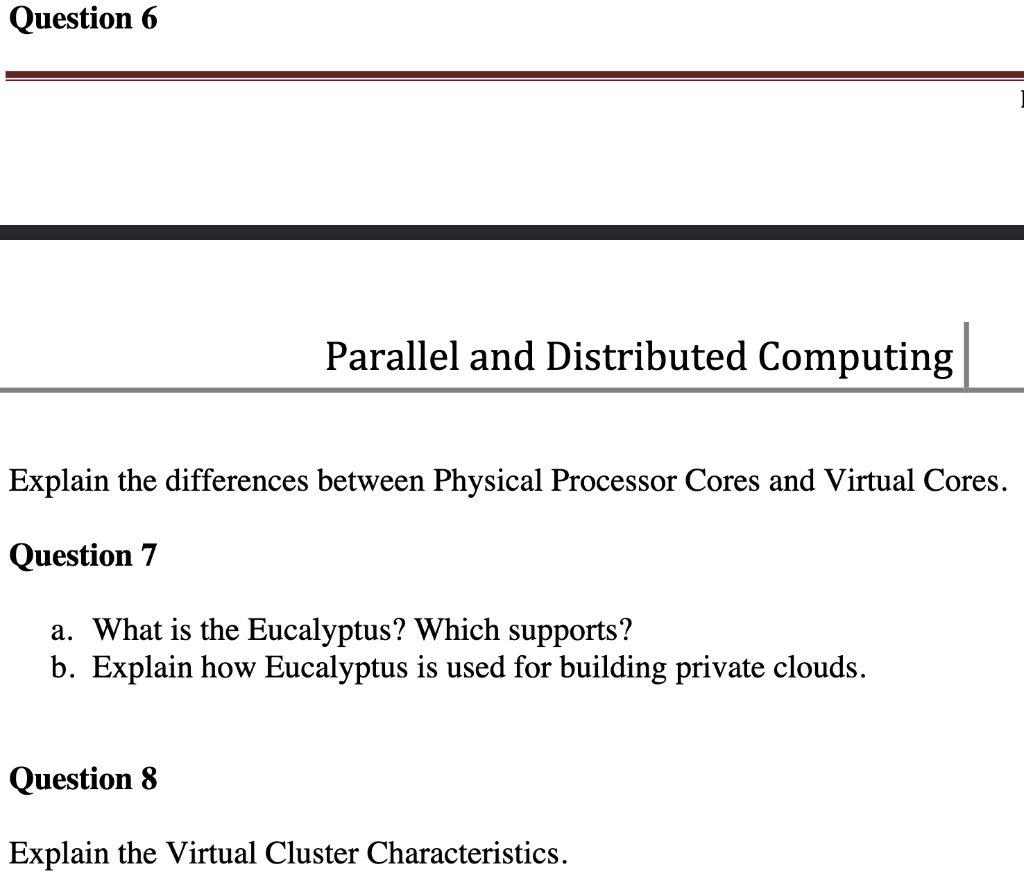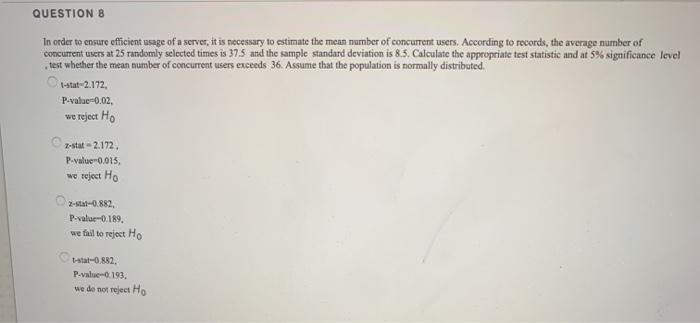Question
Plan your calculation for a given document of size 25 KIB first, and afterward do likewise for a given record of size 2x KIB (for
Plan your calculation for a given document of size 25 KIB first, and afterward do likewise for a given record of size 2x KIB (for some random x). Note that x is an unsigned whole number where x > 0. The most ideal way to plan your calculation for this issue is to utilize graphs or pics which itemized portrayal of each part. Be basically as clear as could be expected, and characterize plainly each progression taken during the interaction.
2. Compose the recursive pseudocode that addresses your calculation in (1) when the size of the information record is 2x KIB. The pseudocode should be done in LaTeX Presentation
This task has been brokendown into criticaldeadlines called achievements. Carrying out projects usingmilestones will assist you with remaining on track with respectto courses of events and offsetting the responsibility.
Before the finish of achievement #3, you will have made a fundamental patient (pet) arrangement framework for a veterinary facility. Patient contact data will be overseen as well as the planning and the executives of arrangements.
Every achievement will expand upon the past, adding greater usefulness and parts. Achievement #1 is centered around giving partner works that will help you in the advancement of the general arrangement in futuremilestones. These capacities will smooth out your rationale and improve on the general clarity and viability of your program by giving you laid out schedules that have been totally tried for unwavering quality and take out pointless code overt repetitiveness (so use them at whatever point possibleand don't copy rationale previously done).
Every achievement will be releasedweekly and can be downloaded or cloned from GitHub:
https://github.com/Seneca-144100/IPC-Project
Reflections will be gradedbased on the distributed rubric:
https://github.com/Seneca-144100/IPC-Project/tree/ace/Reflection%20Rubric.pdf
Readiness
Download or clone the Assignment 1 from GitHub.
In the catalog: A1/MS1 you will observe the Visual Studioproject documents prepared to load.Open the project(a1ms1.vcxproj) in Visual Studio.
Note: the projectwill contain just a single source code record which is the fundamental analyzer "a1ms1.c".
Achievement - 1 (Weight: half)
Achievement 1 incorporates a unit analyzer (a1ms1.c). A unit analyzer is a program which conjures your capacities, passing them realized boundary values. It then, at that point, analyzes the outcomes returned by your capacities with the correctresults to decide whether your capacities are working accurately. The analyzer shouldbe used to affirm
your answer meets the particulars for every "assistant" work. The assistant capacities ought to be completely tried and fall flat resistant (100 percent solid) as they will be utilized all through your task achievements.
Advancement Suggestions
You will be fostering a few capacities for this achievement. The unit analyzer in the document "a1ms1.c" accepts
these functionshave been createdand, until they exist, the program won't aggregate.
Technique - 1
You can remark out the lines of code in the "a1ms1.c" document where you have not yet made and characterized the referred to work. You can find theselines in the capacity definitions (after the primary capacity) and for each test work, find the line that calls the capacity you have not yet evolved and just remark the line out until you are prepared to test it.
System - 2
You can make "emptyfunction shells" to fulfill the presence of the functionsbut give them no rationale until
you are prepared to program them. These vacant capacities are much of the time called hits.
Survey the details underneath and recognize each capacity you really want to create. Make the vital functionprototypes (put in the .h header record) and createthe matching functiondefinitions (put in the .c source document), just with void code blocks (code nothing yet). In situations where the capacity MUST return a worth, hardcode (briefly until you code the capacity later) a return esteem so your application can accumulate.
Particulars
Achievement 1 will lay out the capacity "aides" we will draw from on a case by case basis all through the three achievements. These capacities will deal with routinesthat are commonlyperformed (enormously reducescode overt repetitiveness) and give assurancethey achieve what is expectedwithout fall flat (should be dependable).
Make a modulecalled "center". To dothis, you should make two documents: "core.h" and "core.c" and add them to the Visual Studio project.
The header record (.h) will contain the capacity models, while the source document (.c) will contain thefunction definitions (the rationale and how each capacity functions). Reorder the remarked area accommodated you in the a1ms1.c document (top part) to all records you make Fill in the data as needs be The "core.c" record will require the typical standard inputoutput framework libraryas well as the new client library "core.h", so make certain to includethese.
Audit the "a1ms1.c" analyzer document and inspect each characterized analyzer work (afterthe fundamental capacity). Every testerfunction is designedto test a specifichelper work.
Two (2) capacities are accommodated you. Here are the capacity models you should duplicate and placeinto the "core.h" headerfile:


Step by Step Solution
There are 3 Steps involved in it
Step: 1

Get Instant Access to Expert-Tailored Solutions
See step-by-step solutions with expert insights and AI powered tools for academic success
Step: 2

Step: 3

Ace Your Homework with AI
Get the answers you need in no time with our AI-driven, step-by-step assistance
Get Started


